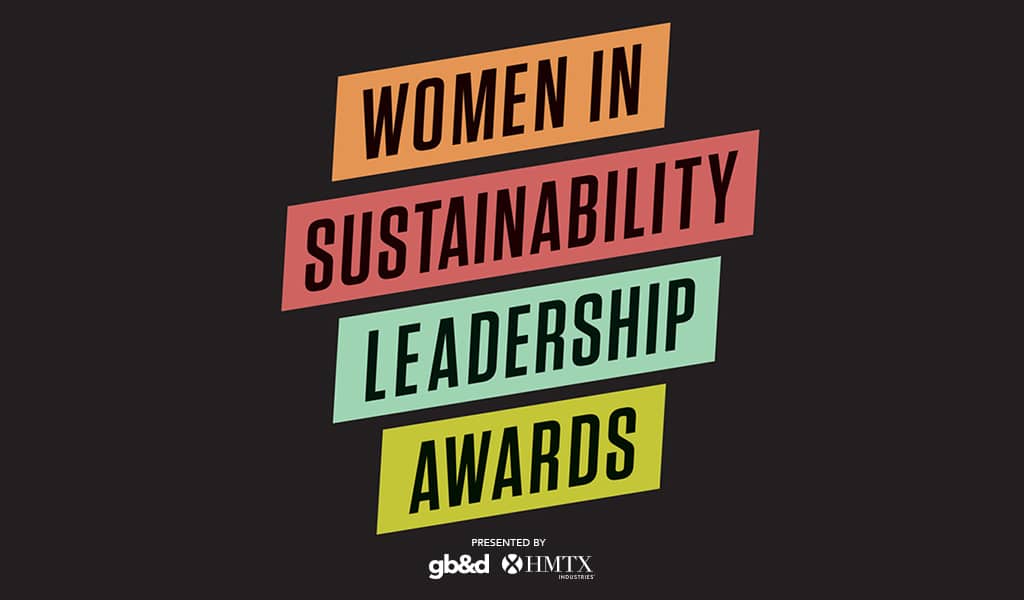How these 10 women are making the world a greener, safer, better place.
In municipalities, board rooms, construction sites, universities, and all over the world, these 10 women have been making waves that demand recognition. From a young age, this year’s winners knew they wanted to achieve greatness, and they dove into their careers headfirst, whether it was a male-dominated industry that welcomed them or not. When, sometimes, no drive toward sustainability existed at their workplaces, these women spoke up, suggesting green initiatives and making the case for why a more sustainable process might make for better business. When dangerous chemicals were all too common in consumer products or the rapid rise in greenhouse gases were not taken seriously, these women took notice and spoke up, even when told not to. This year, as part of gb&d’s sixth annual Women in Sustainability Leadership Awards (WSLA), we recognize these inspiring leaders for their continued accomplishments as they encourage us all to do better. gb&d will honor the winners as part of an awards dinner and reception coinciding with Greenbuild in Atlanta in November.

Rebecca Boenigk
CEO, Neutral Posture
Rebecca Boenigk believes you can have it all. She and her mother took their ergonomic seating company Neutral Posture from a startup to a publicly held company in nine years. In 1997 Neutral Posture became the first and only certified women-owned business to be traded on the NASDAQ before a family buyout of public shareholders in 2001 made Neutral Posture a privately held company again.
Today Boenigk continues to make smart business decisions and push the industry forward as part of her work with BIFMA, the not-for-profit trade association for business and institutional furniture manufacturers, where she serves on the board to lead, advocate, inform, and develop standards for the industry. Boenigk was the first woman president of the organization. Neutral Posture has been BIFMA LEVEL certified since 2013.
Boenigk had to overcome her share of misconceptions about females in furniture manufacturing to get to where she is today, though, even facing discrimination at banks early on. “Overcoming the stigma that females were inferior to males in our industry and even within my hometown was a challenge,” she says. In 1996 she and her mother bought their building—only after the bankers redrew the papers without the business owners’ husbands’ names.
“There weren’t a lot of us when my mother and I started our business in 1989. When I first joined the BIFMA board I was amazed that the members of the board who are all competitors would sit around the table working for the good of the industry, but I was the only female at the table.” Working with competitors to go to DC and lobby for the industry, partnering to create higher standards, and testifying before Congress on the importance of small business opportunities and opportunities for women in business helped to validate Boenigk to others. “Not only do I strive to make the business world more female friendly, but small business friendly.”
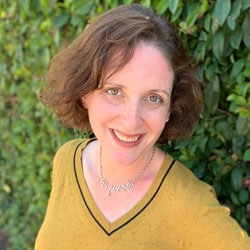
Eden Brukman
Department of the Environment,
City and County of San Francisco
When Eden Brukman was 8 years old, she told her parents she wanted to be an architect. Her love of the built environment quickly evolved into green building and, as an adult, she’s spent more than two decades incorporating socially and environmentally responsible strategies into design and construction. Given the fast-paced and highly com-petitive setting in architecture firms, she dedicated her free time to giving herself an edge over her counterparts, and she learned what was a valuable lesson—she had to prioritize her interests and channel her energy to achieve marked results. Starting out, fellow advocates for sustainability were few, but precious. Brukman learned from them and followed in their footsteps to become a mentor to others, too. Among her many accolades, Brukman coauthored the Living Building Challenge and the Health Product Declaration, both of which went on to have tremendous impact, to say the least. The HPD quickly became one of the most widely recognized transparency tools in the industry.
Brukman currently serves as the Senior Green Building Coordinator for the San Francisco Department of the Environment, researching opportunities for citywide policies and advising municipal project teams working on more than seven million square feet of new construction or renovations. She has mentored recent college graduates and young professionals. She also worked as an architect-in-residence and steering committee member for Oregon’s Architects in Schools program, translating basic theories of design and green building into fun learning activities for elementary students. The most far-reaching mentorship and education effort Brukman has created is ILFI’s Ambassador Network. This “train the trainer” global platform for local action is now in 45 countries; Brukman has mentored volunteers in 19 countries and 43 states in the program’s first 18 months.

Lisa Dyson
Cofounder and CEO, Kiverdi
In 2011 Lisa Dyson founded Kiverdi, a biotech company with NASA-inspired technologies that transforms carbon dioxide into people- and planet-friendly nutrients and bio-based products. While 36 billion tons of carbon dioxide are emitted worldwide each year, Kiverdi’s technology recycles some of that carbon to address global issues like sustainable food production and the world’s reliance on plastics.
Since its foundation, Kiverdi has partnered with aquaculture leader Skretting to create a more sustainable fish feed as well as worked with Fater, a European-based joint venture between Procter & Gamble and Angelini Group to transform plastic and cellulose from recycled diapers into valuable bio-based products. “Kiverdi is focused on remaking supply chains,” Dyson says.
Dyson has been surrounded by entrepreneurs since childhood and says she also adopted that mentality. “The existing supply chain needs to change to sustainably meet the needs of our growing population. Kiverdi is proving that remaking supply chains is attainable with scalable technology and solutions.”

Genell W Ebbini
Assistant Professor, University of Minnesota College of Design
When others weren’t doing enough to emphasize green practices in design, Genell W. Ebbini started her own sustainability design firm, enFusion2. It was a huge risk, but one that was well worth it. Ebbini says starting her own business allowed her to forge the meaningful career she wanted, both in the U.S. and abroad. More recently, however, she’s looked to how she can make change within the larger culture, working within the education system. “I feel the leadership area where I can have the most impact is my interactions with students,” she says. “I take great pride in inspiring and supporting design students and encouraging them to take on leadership roles as they initiate their careers.”
Ebbini works to expose her students to the real world, with activities that run the gamut from attending NeoCon to even a study tour to Jordan in collaboration with the Jordan Green Building Council. In 2010 Ebbini moved to Jordan to manage an international team working on a proposed 200,000-square-meter USGBC LEED project. She became deeply involved with the Jordan Green Building Council then, allowing her to expand that organization’s influence. Over the years she was able to improve building design in Jordan and promote sustainability standards across the Middle East and North Africa.
It hasn’t all come easy, though. While the interior design profession is overwhelmingly female, the greater architecture and design industry is male-centric and, as such, women in interior design are often pressured to stay within their “sphere” and discouraged from taking on serious issues. Ebbini didn’t let that hold her back. While it wasn’t easy, she continued to push to prove her professional expertise in the face of male skepticism and over-prepare in delivering her design services. Today she continues to speak up when others are silent and to take bold action in her career choices.
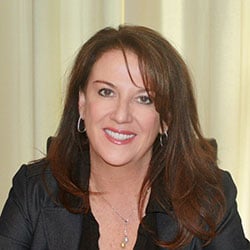
Maureen Eisbrenner
CEO & Founder, arbnco
Maureen Eisbrenner is no stranger to taking risks and finding success; she’s founded three companies in her career. As the current founder and CEO of software company arbnco, her work has helped to create a market disrupting product that reduces carbon emissions and monitors indoor air quality with a myriad of solutions. The company’s efforts are already making visible change in the UK, and that work continues globally.
Eisbrenner comes from a family of entrepreneurs and self-starters, so she’s seen up close and from a young age just how hard work gets done. While her career began at an entry level job in finance, experience with phenomenal mentors helped guide her as to how to operate in even often male-dominated fields with integrity and respect. “Mentorship is an invaluable component of growing any career or business because it facilitates education in a real-world setting. Having someone take you under their wing and show you the ins and outs of a business or sector can give you experience and confidence you would not have gotten otherwise,” she says.
Eisbrenner says it takes a lot of hard work and courage to become a disruptive tech company CEO, but she’s continually overcome the obstacles that are involved in being an entrepreneur—and the sky’s the limit. “Working in predominantly male industries my entire career has had its challenges, but I believe these obstacles fueled my drive to work hard and exceed expectations. The past decade has been an exciting time to be a woman in STEM. It inspires me to see the number of truly brilliant women dedicated to sustainability, especially the ones I have the honor to work with on my team. I am really looking forward to seeing what the future holds for sustainability and the women who help drive its importance.”

Arathi Gowda
Associate Director and Sustainability Team Leader, Skidmore, Owings & Merrill
Arathi Gowda has jumped out of a plane, but the scariest thing she says she’s ever done is speak about sustainability for audiences who are hard-wired to focus on the bottom line. Gowda joined Skidmore, Owings & Merrill (SOM) in 2004, where she spearheaded and leads the firm’s weekly High-Performance Design (HPD) meetings, among other sustainability-focused initiatives.
When she is not auditing SOM’s designed energy savings portfolio, accounting for nearly 400 million square feet of projects to date, Gowda can be found discussing sustainability best practices, software training, high-performance design techniques, and methods to engage and persuade clients to improve their sustainable aspirations. She also helped develop a web-based HPD portal, which aggregates and shares environmental design knowledge that is now used by SOM offices around the world.
Gowda has served as a longstanding member of SOM’s Women’s Initiative, an employee-led group aimed at creating a pipeline for leadership. Self-described as a “textbook introvert,” she cites the struggle of seeking out mentorship—and of course the advice she received—as a formative experience in finding her own voice. Integral in this was her involvement in the Chicago Council on Global Affairs, where she found great mentorship. Today she’s passing that on. “I have always believed mentoring should know no age, and that those older or younger can be mentors and mentees both,” she says. “This model has served me well, and I’ve been heartened by how mentorship of women, by women, has supported my personal development as well as the growth of my network.”
Outside of SOM, Gowda has been involved with the first Design-Build program in the Philippines, where she and colleagues completed a passive community center building for victims of the tropical storm that caused catastrophic damage in 2011. Gowda was also a previous co-instructor at the Illinois Institute of Technology and currently works within the real estate program at Roosevelt University.
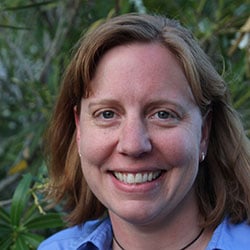
Susan Klosterhaus
Vice President of Science & Certification, Cradle to Cradle Products Innovation Institute
Small projects can be a catalyst for major change: just ask Susan Klosterhaus. Research she conducted on flame retardant chemicals in consumer products while at the San Francisco Estuary Institute was instrumental in the phaseout of toxic chemicals in furniture and baby products. “The work convinced me that science can truly influence policy, and that I could have a bigger impact on preventing toxic chemicals from getting into people and the environment by working with product designers and manufacturers to improve the safety and circularity of their products.”
The realization motivated Klosterhaus to accept her current role at the Cradle to Cradle Products Innovation Institute, where she’s worked for the past seven years to lead a team of scientists focused on developing standards that help manufacturers ensure their products are as safe and circular as possible. Along the way, Klosterhaus has realized that for product designers and manufacturers, sometimes making a small change in the human and environmental safety of a product can feel like a bold action, but once they realize the benefits, those small changes frequently lead to even bigger improvements. “Affecting real change requires bold actions, especially actions that push the boundaries. I learned quickly that getting to those bold actions often has to begin with simply making that first change.”
Klosterhaus’ work at Cradle to Cradle Products Innovation Institute demands that she and her team continue to push those boundaries. “We are developing one of the world’s most advanced, science-based standards for manufacturers seeking to improve the safety and circularity of their products. We have an obligation to keep collaborating and to keep pushing, publicly, for stronger and better technical solutions that help protect human health and the environment.”

Janice Lao
Director, Corporate Responsibility and Sustainability, The Hongkong and Shanghai Hotels
Janice Lao is dedicated to making the world a better place as she works for companies she believes can be a force for good. As a scientist, she understands the tendency toward jargon, but she’s committed to talking about sustainability in ways that are accessible to everyone. In her current role, Lao spends a lot of time listening to colleagues all over the world to learn how they perceive sustainability; this helps to make sustainability a core part of The Hongkong and Shanghai Hotels’ mission. The company has committed to a single use plastic approach—one of the first comprehensive strategies for a hospitality company worldwide. They are also working on a more robust sustainable seafood procurement strategy.
Lao says that, as a woman from the Philippines, she has had few role models, especially ones who are both mothers and executives. However, she found support from male bosses who were open to mentoring a young female leader, and she embraced the need to work alongside men and not only support females, but also promising young men leaders to show them not to be intimidated by strong women.
While Lao’s parents and teachers encouraged her to study STEM, her peers were sometimes confused by her choice. She overcame stereotypes and discrimination with confidence and a “fake it ’til you make it” attitude. She learned to stand up for herself, call out prejudice, and, of course, let her work speak for itself. Having worked in sustainability for nearly 15 years, her current role as part of the leadership team at the oldest hotel company in the world has given her a platform to do even more good. In the past Lao also worked to launch one of Asia’s first green bonds, which led other companies
to follow suit with green financing. She’s also helped set up the foundations of the global carbon trading system in the aviation industry.
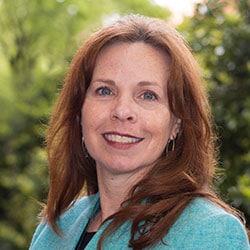
Sara O’Mara
Director of LEED / Environmental Services,
Choate Construction Company
“When I was growing up, I heard time and again from my parents to find work I was passionate about. They said if a person isn’t passionate about what they are doing, their unhappiness will pollute their personal life. When I was introduced to sustainability through USGBC, my passion was ignited.”
Sara O’Mara’s passion for fighting climate change shows. Since she first became involved with USGBC in 2004, she’s spent time on many steering committees, founded local chapters, held board of directors’ roles, became a LEED Fellow, and more. Getting to where she is today took courage. For the first 10 years of her career at Choate Construction Company, she was one of a few females at the table working in operations. “That coupled with being the first LEED AP within Choate showed my ambition, but at times placed me on an island. Living authentically is about forging your own path, staying true to your beliefs and values, and refusing to conform to society’s expectations. Live life on your terms. There were many days I had to remember the why behind my vision rather than just explaining the why behind collecting VOC content for paint.”
For O’Mara, change starts from within. Early on she took an active role working with the city of Charlotte to improve her community. “I identified energy-saving strategies and cost-effective processes that could be implemented immediately and drive sustainable growth within Charlotte.” In 2018 she became part of an external expert leadership group to create Charlotte’s first Strategic Energy Action Plan (SEAP), which emphasizes the need to reduce greenhouse gas emissions to less than two tons of CO2e per person by 2050. She’s most recently joined the city’s SEAP Buildings Working Group to develop strategies to use less energy, increase on-site generation, and increase other zero carbon sources.
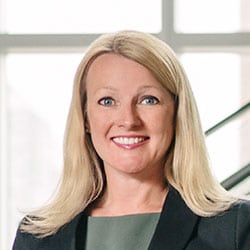
Jeannie Renne-Malone
Vice President of Global Sustainability,
VF Corporation
Jeannie Renne-Malone recently took on a new role as vice president of global sustainability for apparel and footwear company VF Corporation, but she’s long been shaking up industries to make them greener. While at Prologis—where she led the Environmental Stewardship, Social Responsibility and Governance (ESG) program for several years—she established a comprehensive sustainability program that was thoroughly embedded into the day to day and business culture. She led the real estate investment trust to reach new environmental stewardship and social responsibility milestones while paving the way for others in the industry to do the same. In 2018 her work led to Prologis’ own WELL Certification, the first for a logistics real estate company, and to the first green bonds being issued globally by a logistics real estate company.
Her love of the environment started from a young age, as her parents instilled in her a focus on social equity and environmental stewardship. Renne-Malone has led change and innovation all while managing a busy work-life balance as a wife, mother, and an executive in often male-dominated industries across the U.S. and Latin America.
“I have vivid memories of my time managing the Latin America program for the National Renewable Energy Laboratory, presenting in Spanish to primarily male audiences, sometimes heads of government agencies, knowing I had to gain their respect in my first few words,” she says. “Each time I reminded myself that I am equal to everyone in the room, that we are all interested in advancing renewable energy technologies to improve lives and promote economic development. I also reminded myself that I am well-educated, prepared, and dedicated to the success of my work. Knowing that my son’s generation and the generations beyond depend on my sustainability work gave me the courage to stand in front of these various audiences and helped pave the way for my purpose-led career.”
2019 WSLA Judges
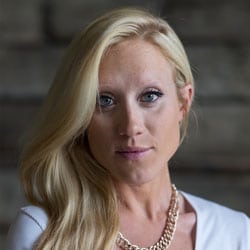
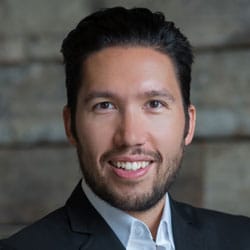
Chris Howe & Laura Heidenreich, gb&d
Chris Howe is the publisher and CEO of gb&d, and Laura Heidenreich is the publication’s associate publisher and president.
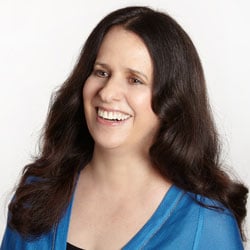
Rochelle Routman, HMTX
Rochelle Routman is the chief sustainability officer of HMTX Industries, a global leader in the resilient flooring industry.

Kimberlay Lewis, USGBC
Kimberly Lewis is the senior vice president of market transformation and development in North America for USGBC.

